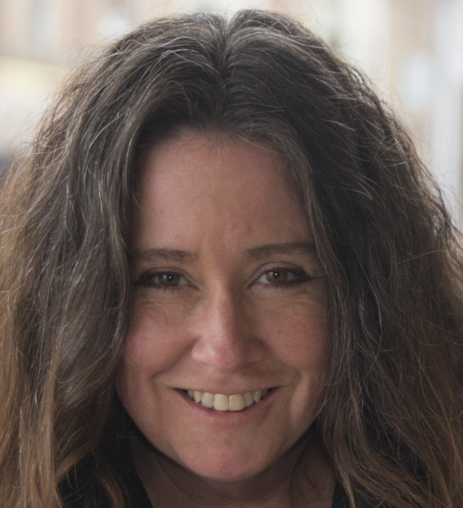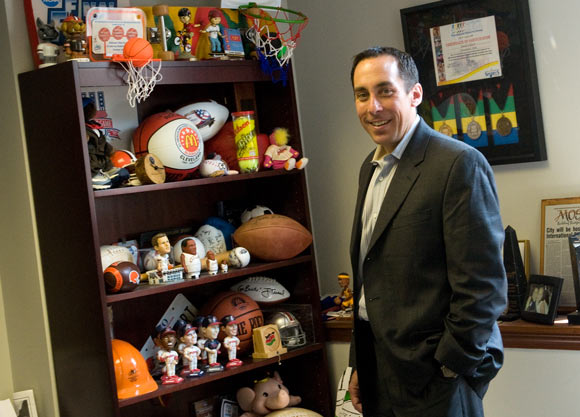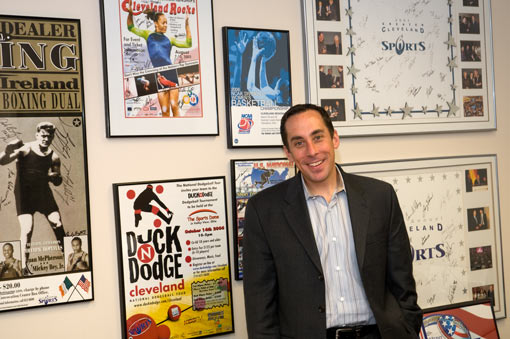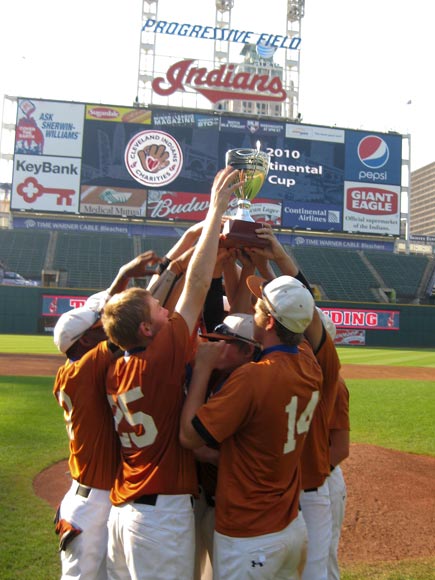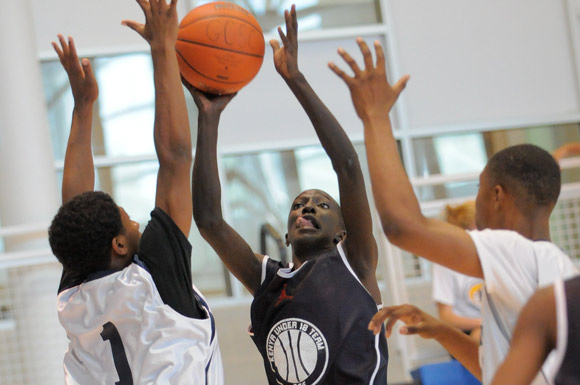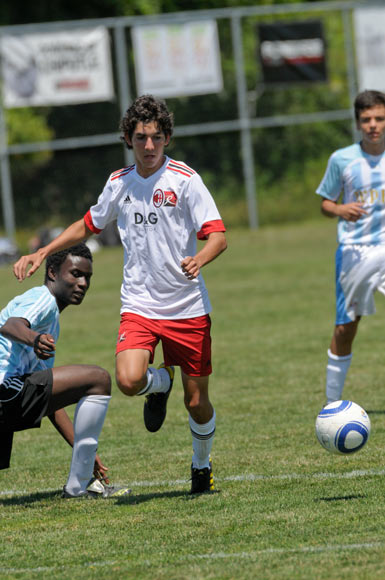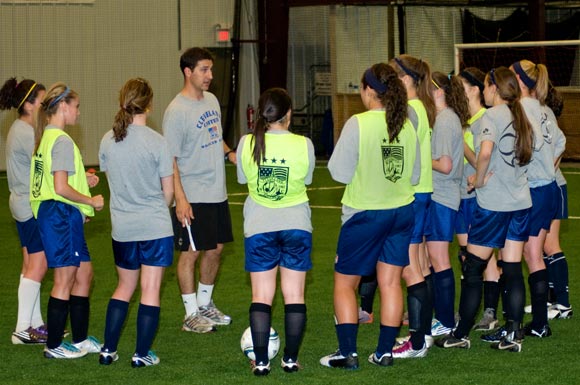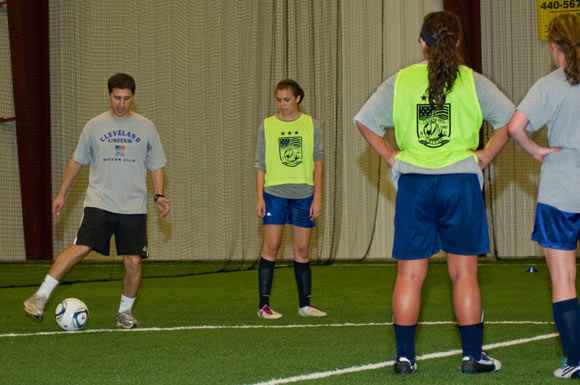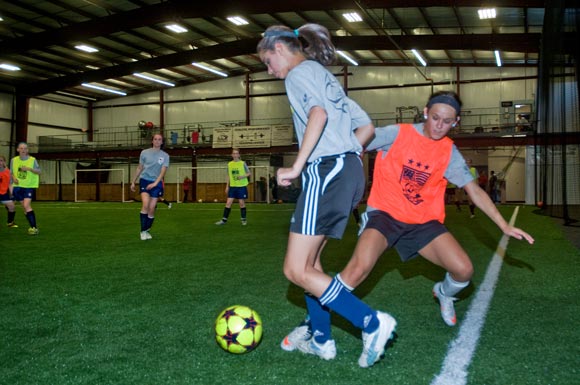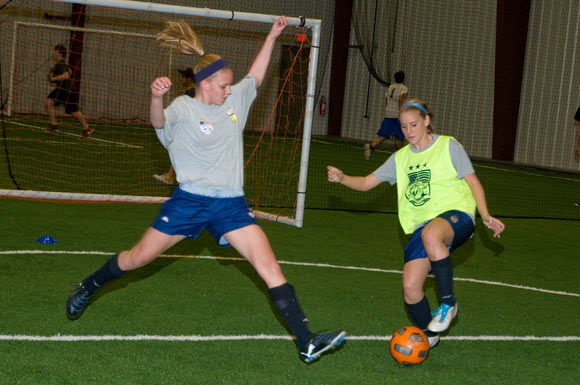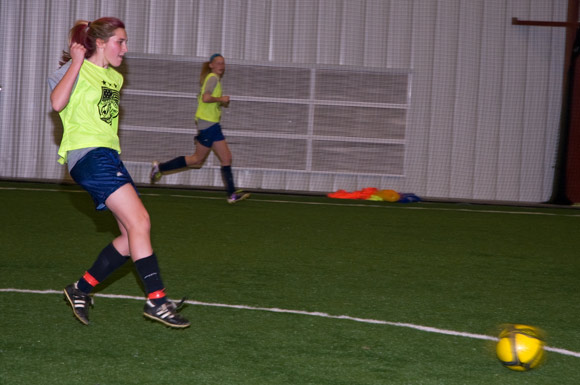greater cleveland sports commission has winning record when it comes to snagging sporting events
With an opening ceremony that includes a parade of international athletes proudly displaying their native flags, a torch lighting, and a dazzling fireworks display, the Continental Cup has more than a few things in common with the Olympics.
Organized by the Greater Cleveland Sports Commission, the Cup will bring in 4,000 young athletes from 25 countries for four days of competitive soccer, baseball, basketball and lacrosse. Those numbers represent a major increase over 2010, when approximately 3,000 youths from 16 countries participated. Hailing from as far afield as Cameroon, Barbados, Nigeria, Singapore and India, the young attendees often enjoy the trip of a lifetime.
"We feel this is a life experience for the boys," explains Leonie Black, team officer for the Australian Kangaroos, a baseball team of 13- and 14-year old players.
Now in its sixth year, the Continental Cup is the flagship event for the Greater Cleveland Sports Commission, an organization that manages to fly under the radar despite the big splashes it makes on the Northern Ohio sports and entertainment scene.
CEO David Gilbert describes the commission as "an economic development organization put together to drive money into the community by hosting and creating international sporting events."
Since its launch in 2000, the organization has grown from a skeleton crew of just two to 13 employees. "It was like starting a small new company," says Gilbert. "We were scrappy."
Over the past decade, that fledgling startup has come into its own, coordinating more than 85 events in Northeast Ohio with an estimated economic impact of more than $300 million. While the Continental Cup is owned and operated by the Commission, much of the organization's efforts go into wooing other high-profile sporting events to Cleveland -- a competition in its own right.
"There's a national association of sports commissions with 300 cities as members," explains Gilbert. "In one way, shape or form they are all actively pursuing these events. It is a very competitive industry."
The first step in attracting an event such as the 2009 U.S. Figure Skating Championships -- and the $20 million it brought with it -- is a business staple: a proposal. The Commission draws up a unique plan outlining how they will market, manage and coordinate every aspect of the event. "It's no different than any other business proposal, says Gilbert."
The commission's nuts-and-bolts efforts have translated into events such as the Gravity Games, which rolled into town yearly from 2002 through 2004, bringing along extreme sports, a healthy dose of hip, and approximately $75 million in economic juice. Other Commission-won events include the 2007 NCAA Women's Final Four, the 2008 U.S. Synchronized Swimming Open, and the 2009 Senior PGA Championship. These are in addition to off-beat ventures like Red Bull Wings Over Cleveland, Vans Xtreme Sport BMX, and the U.S.A. Judo Senior Nationals.
Attracting the best events often means going a few steps further than the competition. "We try very hard to provide a lot of extras and a very good experiential element," Gilbert explains. For the 2011 NCAA Women's Gymnastics Championships, Olympic gold medal gymnast Dominique Moceanu was that "experiential element." When it was held earlier this year, Moceanu acted as the event's spokesperson, appearing in promotional videos, delivering announcements, and adding a splash of celebrity.
"The Sports Commission does the extra things you don't see at other tournaments," says Cleveland United coach Marko Raduka, whose soccer club consists of 18 teams and 275 athletes. At last year's Continental Cup, his 11- and 12-year-old soccer players delighted in the food stands, giant inflatables, and tchotchke-filled goody bags. "Nobody else does that," he adds.
Later this year, the Commission will bring collegiate football to the North Coast with the Cleveland Classic, a gridiron matchup between Central State University and North Carolina Central University. The game, which will be played at Browns Stadium, is the featured event of an activity filled weekend that will include a career fair, step show, and half-time extravaganza.
The Commission also has secured the 2013 National Senior Games, which will feature an estimated 14,000 athletes. During the 16-day event, adults aged 50 and up will compete in a wide array of sports such as cycling, volleyball, track and golf. The haul for the local economy is estimated at $35 million.
"This is a huge, huge event," says Gilbert.
But there is more to these events than dollars and pesos. The chance to experience new places, to make new friends, and to broaden one's cultural horizons are just a few of the reasons the Continental Cup grows with each passing year. Just ask Akron native Janna Pearson, who served as host and translator for a team from Colombia.
"They didn't end up doing that well, which I think disappointed them," Pearson says of her 11- and 12-year-old charges. "But getting to meet other kids from Puerto Rico and Ohio and Boston and all over? That made up for it."
For the young athletes who participate, the games bridge cultures in ways textbooks never will.
"In America, a kid scores and the parents clap politely," says United coach Raduka. Those cheering for the teams from Puerto Rico, however, have a slightly different style. "Every time they scored a goal, you could hear it from wherever you were. They'd light up the whole park."
